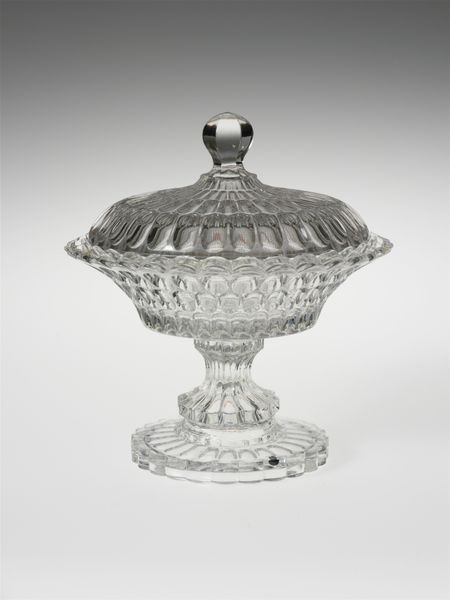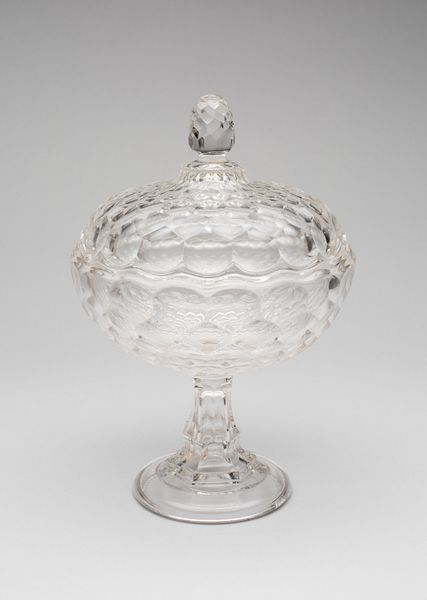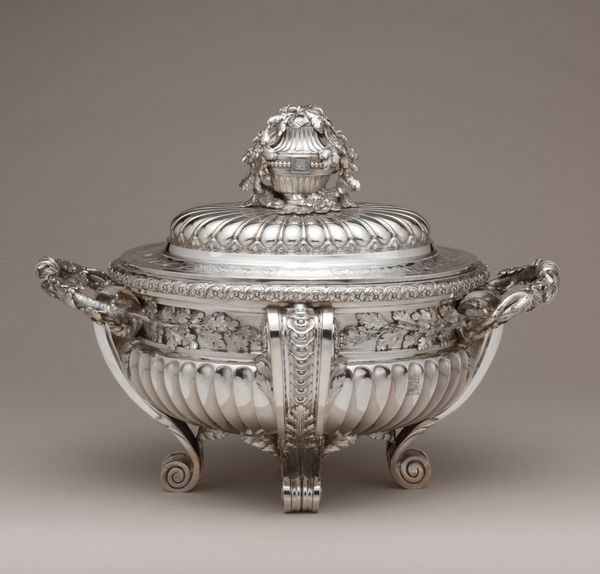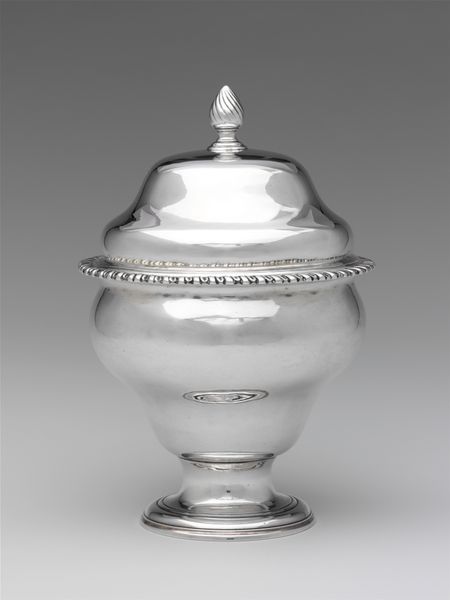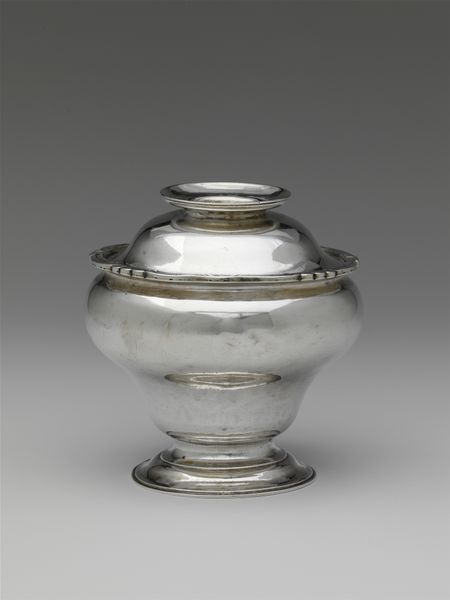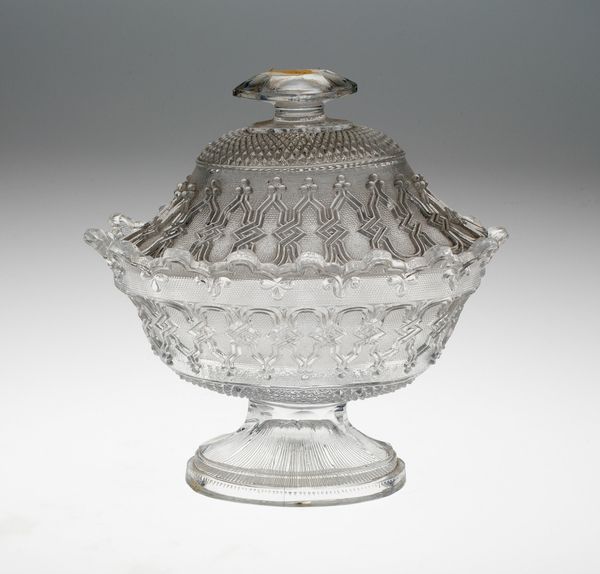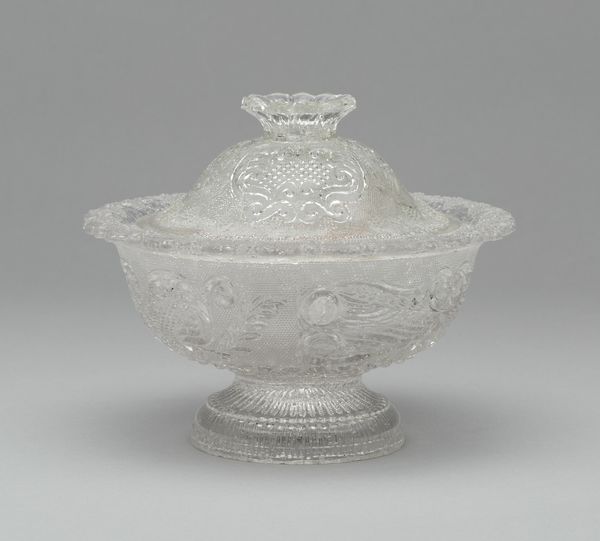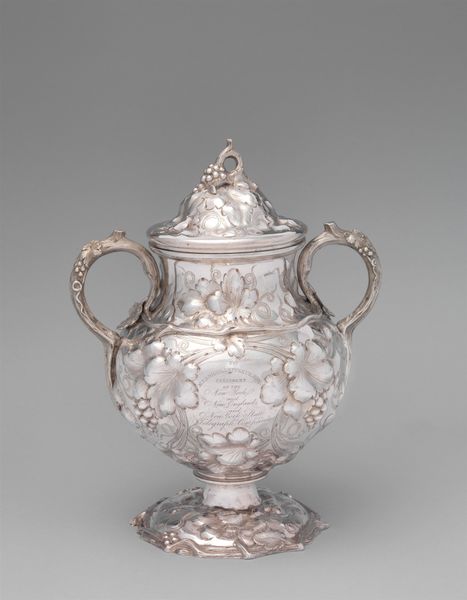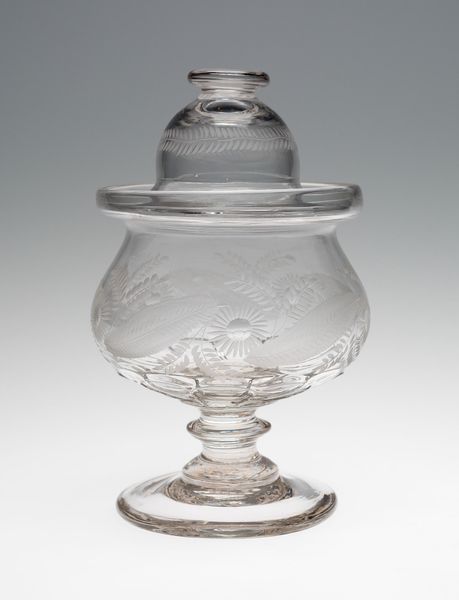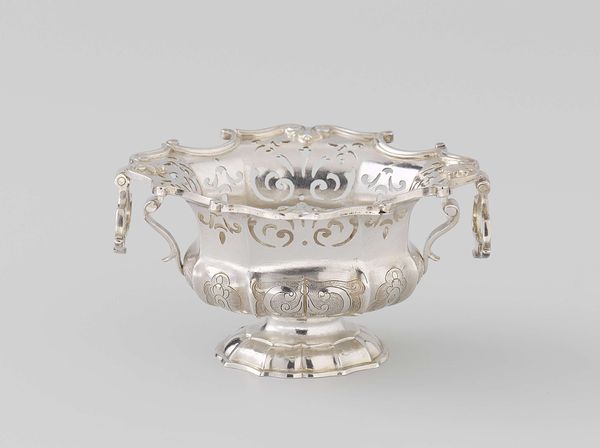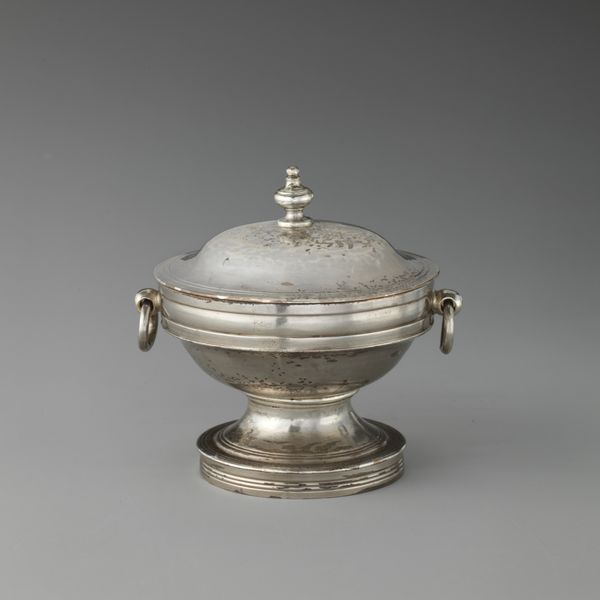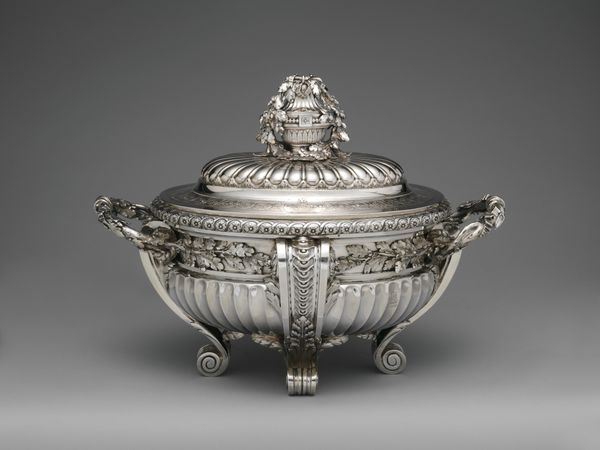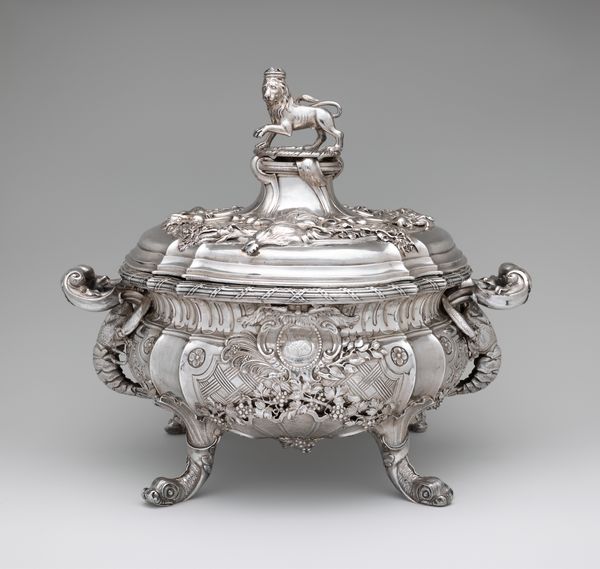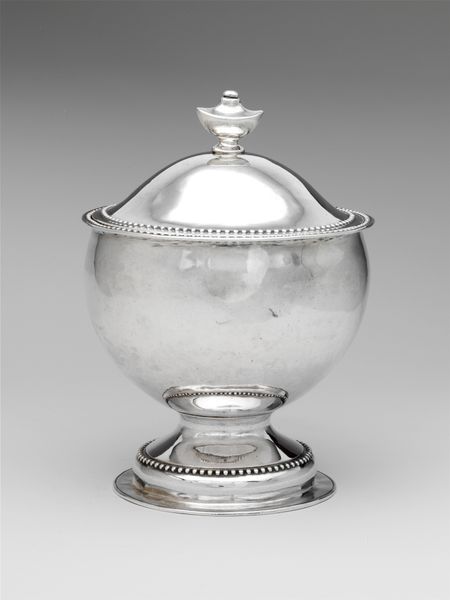
silver, metal, sculpture
#
silver
#
metal
#
bird
#
flower
#
sculpture
#
decorative-art
#
rococo
Dimensions: Overall: 5 1/4 x 5 3/4 in. (13.3 x 14.6 cm); 12 oz. 3 dwt. (377.9 g) Foot: Diam. 2 5/8 in. (6.7 cm) Body: H. 3 1/2 in. (8.9 cm); 9 oz. (279.9 g) Cover: 1 7/8 x 4 in. (4.8 x 10.2 cm); 3 oz. 3 dwt. (98 g)
Copyright: Public Domain
This sugar bowl and cover were made from silver by John Bayly in the 18th century. Silver is a remarkably ductile and malleable material, ideal for elaborate ornamentation. Bayly employed techniques such as hammering, casting, and chasing to shape the metal into its refined form. Consider the weight of the bowl, the cool touch of the silver, and the gentle curve of its silhouette. Notice how the floral motifs encircling the bowl and the delicate bird atop its cover are meticulously detailed, achieved through skillful handwork. Such luxury objects were a direct product of colonial trade and the increased availability of commodities like sugar, which themselves relied on systems of enslaved labor. Silversmiths like Bayly benefited directly from this economic system, transforming raw materials into objects of status and desire. This bowl, therefore, is not just a beautiful object but also a tangible reminder of complex economic and social histories. By focusing on its making and context, we can appreciate the full depth of its meaning, transcending any simple distinction between art and craft.
Comments
No comments
Be the first to comment and join the conversation on the ultimate creative platform.
